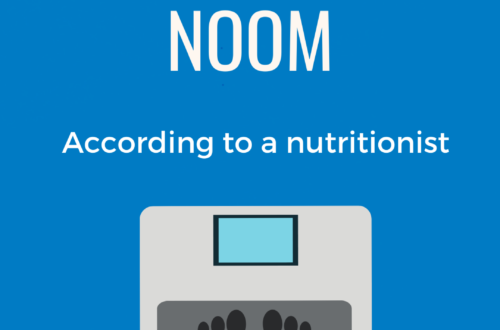4 Reasons to Break Up With Your Fitness Tracker
Or “take a break” … or “just be friends”
Here’s recent imaginary conversation between me and my fitness watch:
Me: “It’s not me, it’s you. You only love me when I walk 10,000 steps per day, you take a lot of my work and exercise for granted, and I’m afraid you’ll share my personal information without my permission. In short, I invest a lot of time and effort in you, yet end up feeling inadequate and betrayed.
I think we should just be friends.”
Fitness watch: [silent]
Fitness trackers are great for a lot of things – like setting a morning alarm that won’t wake your spouse. That is the only reason I purchased my first fitness tracker – a $30 cheapo from Amazon. In addition to setting personal alarms, the gadgets are handy for monitoring your sleep, exercise, heart rate, etc. My husband loves that he can pull up all his exercise, sleep, heart rate data for the last several years. He really geeks out on it, and maybe you do too (ya nerds).
I acknowledge the value in having all this personal data as a means to challenge yourself, track a health condition, or just stay physically fit. For me, though, it’s mostly a distraction that lessens my enjoyment and perception of my own health. For example, I usually know whether I got enough sleep by how I feel the next day. Likewise, if I go for a 10-mile run, I know I got “enough” exercise for one day. Don’t need a fancy watch to validate or tell me these things.
From my own experience and observing others, I’ve landed on four reasons you may want to end or re-evaluate your relationship with your tracker:
#1: You are doing things just to please your fitness tracker, although you’d rather be doing something else.
A goal of 10,000 steps/d is commonly believed by the public to be necessary for health, but this number doesn’t really have any scientific basis.
Truth (no Dares): Have you ever walked around your house/building/block in order to reach the magical 10k mark? I have (insert eyeroll here).
Certainly, exercise guidelines can be helpful, but human health is far too complicated to be reduced to a blanket imperative of 10,000 steps per day (equivalent to ~5 miles). For some people, these rules can even do more harm than good (think increased anxiety, feelings of inadequacy, etc.)
Truth: Have you ever ignored a loved one while checking your health stats (or a text message, or call, etc. for those smartwatch wearers)?
The emotional pull and positive reinforcement from electronics is strong, and I have neglected actual people in favor of a screen at times. Which means, most of us know what it feels like to be ignored while your friend/spouse/kid/coworker is checking some random notification on his/her device.
Where does 10,000 steps come from anyway?
It seems that the origins of the number go back to 1965, when a Japanese company made a pedometer named Manpo-kei, which translates to “10,000 steps meter.” At the time the name was just a marketing tool; however, it is now pretty much imprinted in our health consciousness and usually the default setting on a fitness tracker.
Research has shown that, for a sedentary person, an increase in daily steps, say from 2500 to 4500, definitely has health benefits. However, no further benefit has actually been found for a step count >7500 per day.
#2: Your tracker doesn’t give you enough credit.
Ever work your tail off all day doing yard work or prepping for a party, only to find that your fitness tracker has logged a measly 4000 steps? You’re exhausted and sweaty, yet your tracker mocks you with the “you’re not good enough” step count.
Popular fitness trackers have been known to either not measure valid steps (eg, while pushing a stroller or carrying an armload of stuff) and erroneously measuring others (eg, giving your dogs a bath or pumping your fists in jubilation = thousands of steps!).
#3: Your tracker is using you … for your data.
To be fair, you probably agreed – either by clicking a box or creating an account – to give access to all your activity and health data to the company who built the device, the corresponding app, and self-selected individuals (friends, doctor, etc.). That’s cool with you.
However, the company could change its terms of service, making health data available to third parties; for example, employers or health insurance companies. Most consumers (myself included) don’t take the time to read or don’t fully understand these terms. Although I don’t know of any evidence of this practice, it is easy to imagine an employer or health insurance company assessing a person’s “risk” based on fitness tracker data.
#4: The tracker doesn’t share the useful information with you.
Full disclosure, this is a pet peeve of mine: If I wear a band on my wrist, it had better tell the time, all the time. I don’t want to wave my arm like a crazy person to get the display to work, or push any buttons, navigate, etc. I just want the flippin’ time!
Another example: those annoying reminders to “get up and move.”
Me: “Shut up, watch! I’m in the middle of something and already ran six miles today, you freak!”
Then, I stop whatever more important task I’m doing to figure out how to turn off the reminders.
Still not sure?
Still don’t know if you should break up with – or change some settings on – your fitness tracker? Ask yourself the next two questions:
- Why am I wearing this thing?
- Examples: for yourself, because your spouse gave it to you (me), other?
- With this answer in mind, proceed to #2.
- Is this tracker and the information I give/get from it serving me?
- If “No”, ditch the tracker.
- If “Yes”, proceed to Question #3.
- How is the tracker serving me?
- If you can’t think of any ways the tracker is improving your quality of life, refer back to 2.a. (maybe ditch it).
- After you’ve identified the value the tracker gives you, find ways to eliminate the other information that doesn’t serve you as well. For example:
- If you hate the “movement reminders”, turn them off in the tracker’s settings. Same goes for any other reminders or notifications that are more distraction than function.
- If you consistently feel defeated over not reaching the step goal, modify it to a lower number. Try 7500 for a while and see if that fits better with your lifestyle – hey, that’s still ~3.5 miles per day!
Summary
Constantly monitoring our steps, activity, sleep, and diet is not normal or natural. If left unchecked, these practices can lead to unhealthy relationships with exercise, sleep, food – and people!
How is your relationship with your fitness tracker? Please share your experiences – positive or negative – and if and how you manage your tracker.
Works Cited
Calechman, Steve. “10,000 Steps a Day – or Fewer?” Harvard Health Blog, 10 July 2019, www.health.harvard.edu/blog/10000-steps-a-day-or-fewer-2019071117305.
Lee, I-Min, et al. “Association of Step Volume and Intensity With All-Cause Mortality in Older Women.” JAMA Internal Medicine, vol. 179, no. 8, 2019, p. 1105., doi:10.1001/jamainternmed.2019.0899.
McCracken, Harry. “Your Fitness Tracker May Be Cheating You out of Credit You Deserve.” Fast Company, Fast Company, 21 Jan. 2020, www.fastcompany.com/90453521/your-fitness-tracker-may-be-cheating-you-out-of-credit-you-deserve.
Mull, Amanda. “What 10,000 Steps Will Really Get You.” The Atlantic, Atlantic Media Company, 31 May 2019, www.theatlantic.com/health/archive/2019/05/10000-steps-rule/590785/.
Tedesco, Salvatore, et al. “Accuracy of Consumer-Level and Research-Grade Activity Trackers in Ambulatory Settings in Older Adults.” Plos One, vol. 14, no. 5, 2019, doi:10.1371/journal.pone.0216891.
Yang, Rayoung, et al. “When Fitness Trackers Don’t ‘Fit’.” Proceedings of the 2015 ACM International Joint Conference on Pervasive and Ubiquitous Computing – UbiComp ’15, 2015, doi:10.1145/2750858.2804269.
Disclaimer: I am not a doctor. The information I provide is based on my personal experience, education and study of dietetics, human nutrition, and biochemistry; and my experience as a runner and athlete. Any recommendations I may make about exercise, nutrition, supplements or lifestyle; or information provided to you in person or on this website are for information purposes only and do not take the place of professional medical advice.





One Comment
ankle activity tracker
As part of a healthy workplace our group of sitdown workers got wearables and use them
to track steps, we each set our own goals and measure our
progress (whatever tat means to each person).
I really like the visual reminder to move.